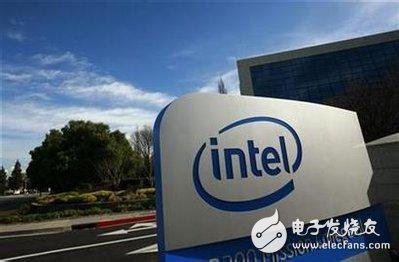Intel (Intel) has recently been actively involved in the development of the Internet of Things (IoT) with the intention of expanding beyond the PC. The company recently acquired network chip technology and wearable technology through mergers and acquisitions to strengthen its chip architecture's competitiveness in ultra-low power applications and expand its patent and R&D capabilities.
Intel recently spent $650 million to acquire LSI's Axxia network chip business from Avago Technologies, which is headquartered in Singapore. Through this move, Intel intends to integrate Axxia's wireless network access technology into its own system on a chip (SoC) to enhance the data center computing and communication performance of the Internet of Things.

Axxia's main business is the development of SoCs for network infrastructure, with revenues of approximately $110 million in 2013. Intel expects to complete the acquisition in the fourth quarter of 2014.
According to the investment website Seeking Alpha, Intel is a market leader in computer processors, but it faces strong obstacles in other aspects. Taking smart phones as an example, although Intel has cut into the market with Atom processors, its usage rate is still far lower than that of ARM (authorized) chips.
Intel's acquisition of Axxia is undoubtedly preparing for the layout of the Internet of Things market. The Internet of Things market is huge, covering all computing devices except PCs, servers and smart phones.
According to research by Gartner, the market research institute, the Internet of Things market will grow 30 times from $900 million in 2009 to $26 billion by 2020. The terminal market sales will also bring 1.9 trillion economic value to the world.
Intel's investment in the Internet of Things is relatively late, but it has a great ambition to continue to actively invest in this market, and expand its intellectual property rights and research and development capabilities through mergers and acquisitions.
In addition to SoCs, Intel is also trying to get involved in systems and applications for ultra-low-power chips and the Internet of Things. Basis Science, which Intel acquired in 2014 and developed a wearable health record device, immediately gained the ability to enter the wearable device market. The market has endless potential and is expected to double to 20 billion in 2018.
Seeking Alpha analysts believe that Intel's integration of Axxia's network technology will help develop the next generation of IoT device technology, helping operators build a more efficient, scalable and resilient network infrastructure to meet the future. The huge network bandwidth requirements generated by the massive IoT devices are expected to accelerate the market leader in the network infrastructure market.
LSI was acquired by Avago for $6.6 billion in 2013, after which Avago continued to split the LSI business, including selling the cache storage division to hard disk maker Seagate for $450 million.
We are a pioneer firm with the main focus on offering a top class range of LED Street Light to our deemed patrons. Offered street lights are fabricated under the surveillance of professionals as per market trends. In addition to this, our quality editors take charge of delivering a flawless range at the patrons end to maintain pace with the patrons needs and requirements. Moreover, patrons can avail these products in various sizes and grades.We have LED Street Lights in the range of 30w to 200w. All are smd based with very high quality lens.We use high surge protection drivers and our product is ip67.
60W Led Street Lights,60W Led Street Light Solar,60W Led Street Lamp,60W Aluminium Led Street Light
Yangzhou Bright Solar Solutions Co., Ltd. , https://www.cnbrightsolar.com